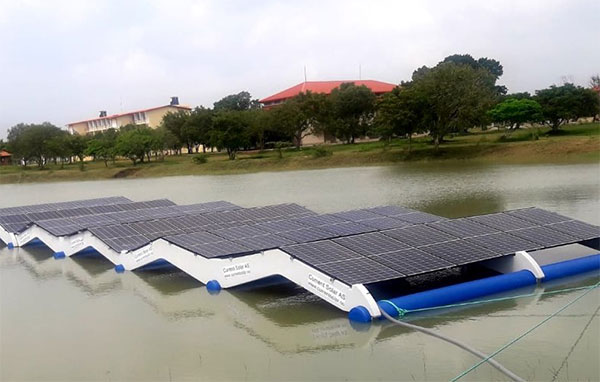Sri Lanka has made significant progress in resolving its bankruptcy crisis, reaching preliminary debt restructuring agreements with both official and private creditors. These agreements pave the way for the island nation to revive its stalled IMF loan program and secure much-needed financial assistance.
The country’s financial woes, culminating in a sovereign debt default in April 2022, have necessitated a concerted effort to restructure its obligations and pave the way for a sustainable economic recovery.
Unraveling Sri Lanka’s Debt Structure
Sri Lanka’s external debt burden stands at approximately $46 billion, with bilateral lenders accounting for the largest share, holding 51% of the total debt. International sovereign bonds (ISBs) represent 42% of the debt, while other institutional lenders hold the remaining 7%.
China emerges as Sri Lanka’s largest bilateral creditor, holding approximately 10% of the total external debt, translating to roughly $7.3 billion. This substantial exposure highlights the crucial role China plays in Sri Lanka’s debt restructuring endeavors.
A Timeline of Debt Restructuring Milestones
2022 marked a turning point in Sri Lanka’s debt trajectory, with several key developments unfolding:
• April 2022: Sri Lanka defaults on its foreign debt, signaling the onset of its worst economic crisis in history.
• May 2022: Recognizing the urgency of debt restructuring, the government appoints international financial and legal advisors to engage in negotiations with creditors.
• July 2022: A preliminary debt restructuring agreement is reached between Sri Lanka and China, a significant step towards alleviating the country’s financial strain.
• September 2022: To further streamline its debt obligations, Sri Lanka successfully restructures $10 billion of local debt.
• October 2022: A tentative agreement is reached between Sri Lanka and the Export-Import Bank of China (EXIM Bank) to restructure $4.2 billion of debt.
The IMF’s Role in Sri Lanka’s Economic Recovery
In March 2023, Sri Lanka secured a $2.9 billion Extended Fund Facility (EFF) program from the International Monetary Fund (IMF), a crucial lifeline to support its economic recovery efforts. The first tranche of $330 million was disbursed in March, while the release of the second tranche hinges on Sri Lanka’s progress in reaching debt restructuring agreements with all foreign creditors.
Navigating the Challenges Ahead
Despite the encouraging progress made on debt restructuring, Sri Lanka still faces significant challenges. The economy is gradually recovering from the deep recession of 2022, and further reforms are needed to enhance fiscal management and transparency.
President Ranil Wickremesinghe has expressed optimism about Sri Lanka’s economic outlook, emphasizing the country’s proximity to securing a comprehensive debt restructuring agreement with its external creditors. This agreement would facilitate the IMF’s first review of the $2.4 billion bailout facility approved in March 2023.
Echoing this sentiment, the governor of the Central Bank Nandalal Weerasinghe underscored the importance of the second tranche of the IMF bailout facility, highlighting its potential to trigger additional support from the Asian Development Bank, the World Bank, and the IMF.
Analysts and credit strategists have expressed cautious optimism, acknowledging the progress made on debt restructuring while recognizing the challenges that lie ahead. Barclays credit strategist Avanti Save commended the government’s focus on maintaining inter-creditor comparability, while Bloomberg Intelligence credit analyst Christine Peterson cautioned that Sri Lanka’s full economic recovery remains uncertain.
Conclusion: A Path Towards Sustainable Growth
Despite the formidable challenges that persist, Sri Lanka’s concerted efforts in debt restructuring have laid the groundwork for a sustainable economic recovery. The progress made thus far signals a commitment to addressing the country’s fiscal challenges and attracting much-needed foreign investment. With continued dedication to reforms and prudent financial management, Sri Lanka has the potential to regain its economic stability and achieve sustainable growth.
Ajith Perakum Jayasinghe







